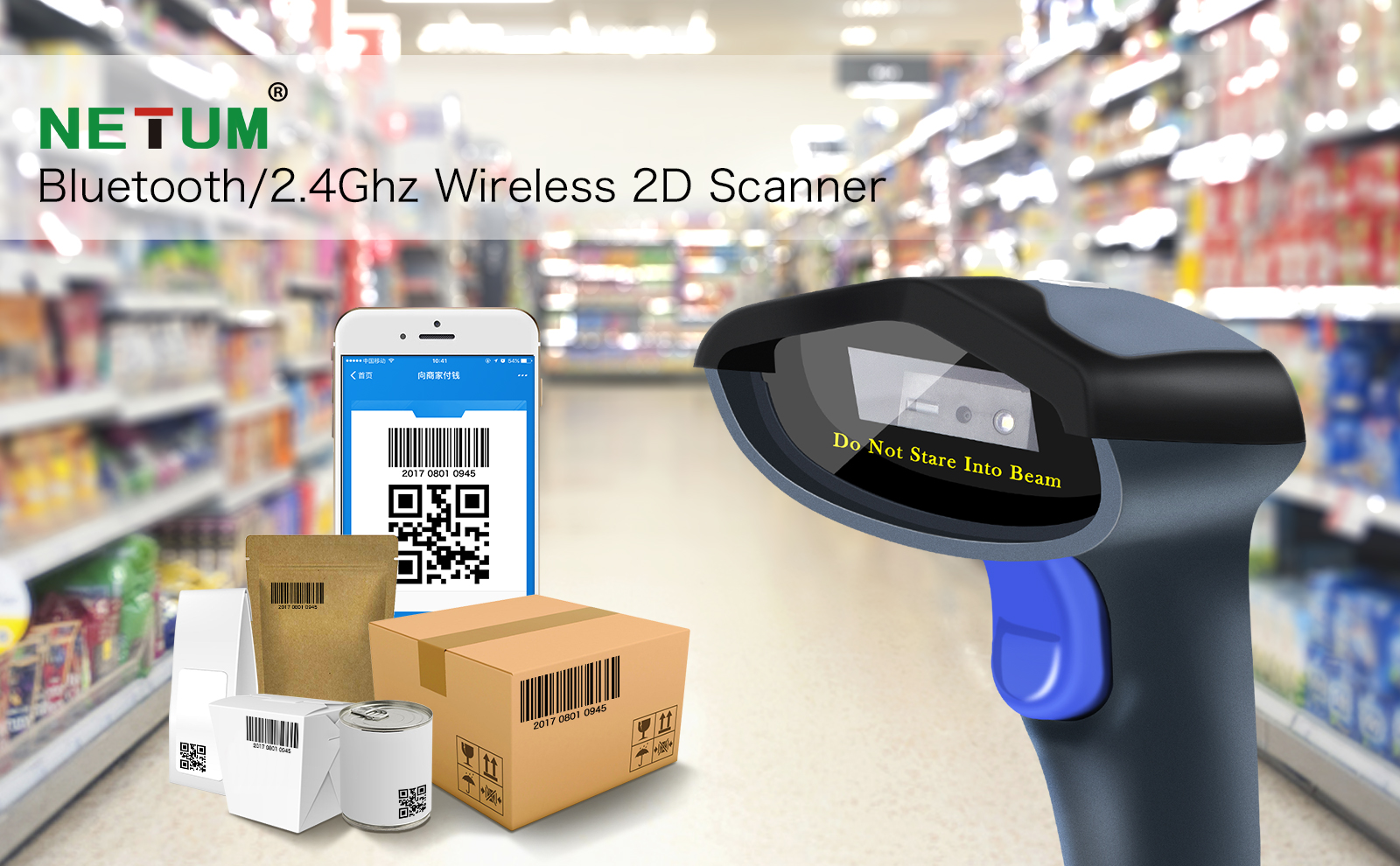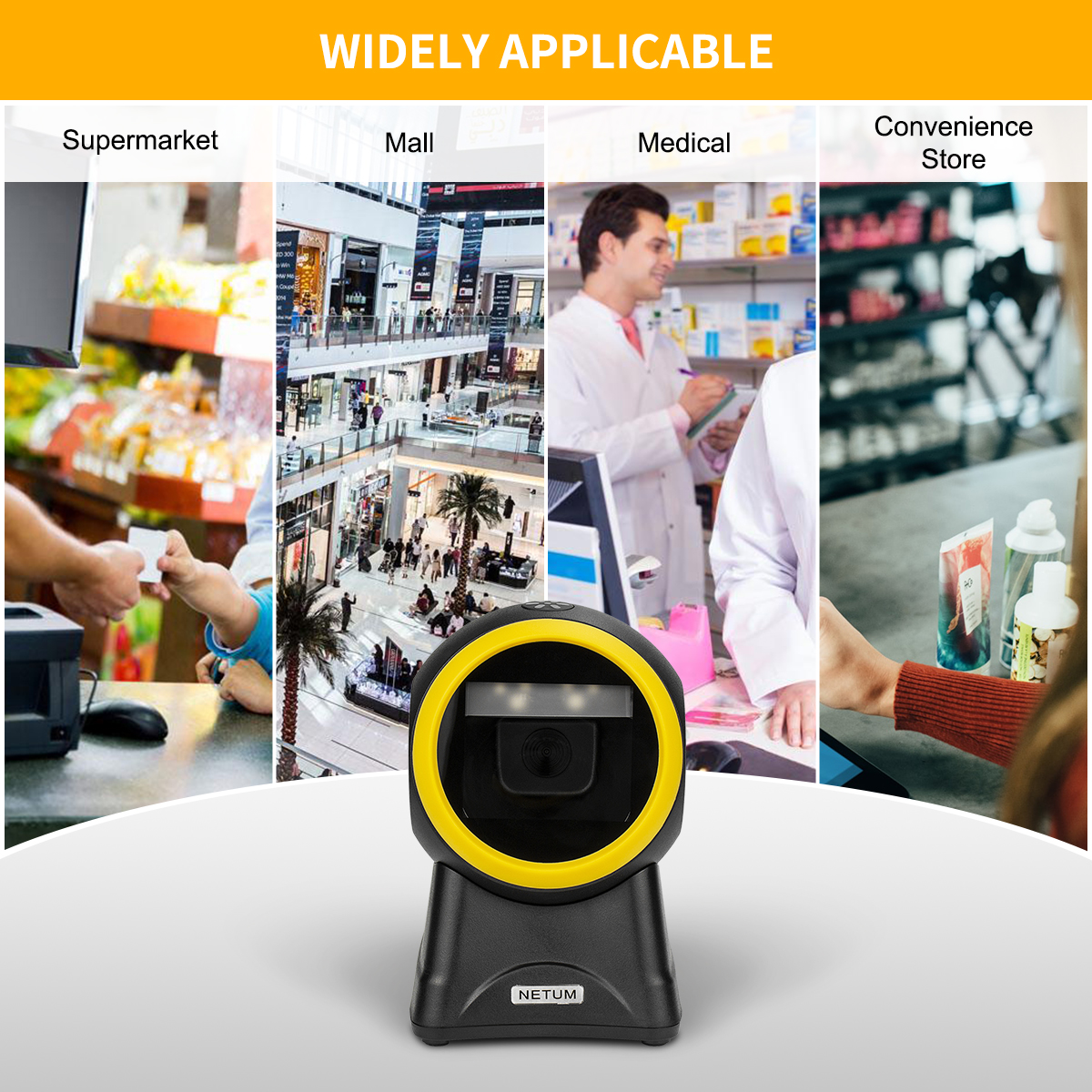What is a Retail Barcode Scanner?
In today's fast-paced retail operations, barcode scanners are no longer just simple "scanning tools" but core devices for improving efficiency and optimizing management. Many retailers often fall into a selection dilemma due to insufficient understanding of the devices. To select a scanner that meets their own needs, it is necessary to break down the process from basic understanding to practical selection.
First of all, it should be clear that a retail barcode scanner is a core data collection device capable of reading barcode information (such as product SKU, price, inventory data) on commodities, labels or packaging. By replacing manual data entry, it greatly reduces data errors and simplifies processes such as checkout and inventory management, serving as an important support for the efficient operation of modern retail. It is indispensable for both small convenience stores and large chain supermarkets.

Working Principle of Retail Barcode Scanners
In terms of working principle, although the operation process of a retail barcode scanner takes only milliseconds, it follows a clear logic. The first step is illumination: the laser or LED light source of the scanner irradiates the barcode, making the dark bars absorb light and the light spaces reflect light. Next is signal conversion: the optical sensor captures the reflected light and converts the "light-dark" pattern into an analog electrical signal. Then, the signal processor converts the analog signal into a digital code that matches the barcode sequence, and decodes it into readable standard data (such as product SKU) through an algorithm. Finally, the decoded data is transmitted to the POS system or inventory software via interfaces such as USB and Bluetooth, triggering operations like displaying prices and updating inventory. Understanding this principle helps retailers better judge whether the performance of a device meets their needs.
Application Scenarios of Retail Barcode Scanners
In retail scenarios, barcode scanners have a wide range of applications. In the checkout process, they scan product barcodes to automatically populate prices, reducing errors caused by manual entry, and also support scanning QR codes for mobile payments (such as Alipay and WeChat Pay) to improve checkout efficiency. During inventory management, staff use handheld scanners to count commodities, and the data is synchronized to the system in real time to avoid stockouts or overstocking. When receiving new goods for storage, scanning the barcodes on packaging boxes can quickly verify whether the commodities are consistent with the orders. Barcode scanners can also be linked with label printers: after scanning a product barcode, an accurate price tag is generated, which is helpful for promotional activities. In addition, some scanners integrated with RFID technology can track high-value commodities and play a role in loss prevention.
How to Choose a Suitable Retail Barcode Scanner?
Then, how to choose a barcode scanner suitable for retail scenarios? The key lies in considering five core factors. First, barcode type: if only 1D barcodes (such as UPC codes) are used for commodities, laser or CCD scanners are sufficient; if 2D barcodes (such as QR codes) are involved, image scanners should be selected. Second, application scenario: for high-traffic checkout counters, fixed-bracket scanners are suitable; small stores can choose wired handheld scanners; wireless handheld scanners are needed for inventory counting to facilitate mobile operation; and compact image scanners are required for self-service kiosks to easily scan barcodes on mobile phone screens. Third, connection method: wired connections (such as USB) are stable and low-cost, suitable for fixed checkout counters; wireless connections (such as Bluetooth and Wi-Fi) are suitable for mobile scenarios like warehouse inventory counting, but battery life and signal should be taken into account. Fourth, durability: for complex environments like warehouses, industrial-grade scanners with a protection level of IP54 or above and anti-drop function are needed; commercial-grade scanners are sufficient for regular checkout counters. Fifth, compatibility: it is necessary to ensure that the scanner is compatible with existing POS systems, inventory software and hardware such as computers and tablets. Priority should be given to "plug-and-play" devices to reduce setup difficulty. In addition, it is also necessary to balance cost-effectiveness based on the budget, refer to user reviews and pay attention to after-sales service to ensure that the selected scanner can truly meet the needs of its own retail operations.
NETUM has launched cost-effective scanners for multiple retail scenarios, with recommendations by scenario as follows:
General Checkout: The wireless M8 model is suitable for small and medium-sized stores, supporting 1D/2D barcode scanning and mobile payments, with 2.4G transmission, 8-hour battery life and IP54 protection; the CN-40 fixed platform is suitable for high-frequency checkout in medium-sized stores, featuring adjustable angle, 30% faster scanning speed and USB direct connection.
Inventory Management: The wireless NT-8080W model is used for warehouses of large stores, with a 433 antenna covering 50-100 meters, 360° scanning of incomplete barcodes and IP54 protection; the W8 model has offline storage function, a million-pixel sensor for scanning tiny barcodes, compatible with multiple software, and suitable for both inventory counting and goods receiving inspection.
Specialized Fields: The NT-2028-PS-W model is customized for the pharmaceutical industry, with laser positioning for traceability codes, batch scanning to prevent wrong scanning and 12-hour battery life, priced at 800-1200 yuan; the L8BL Bluetooth model is suitable for clothing retail, supporting 50° tilted scanning of hangtag barcodes and 2-meter anti-drop function.


